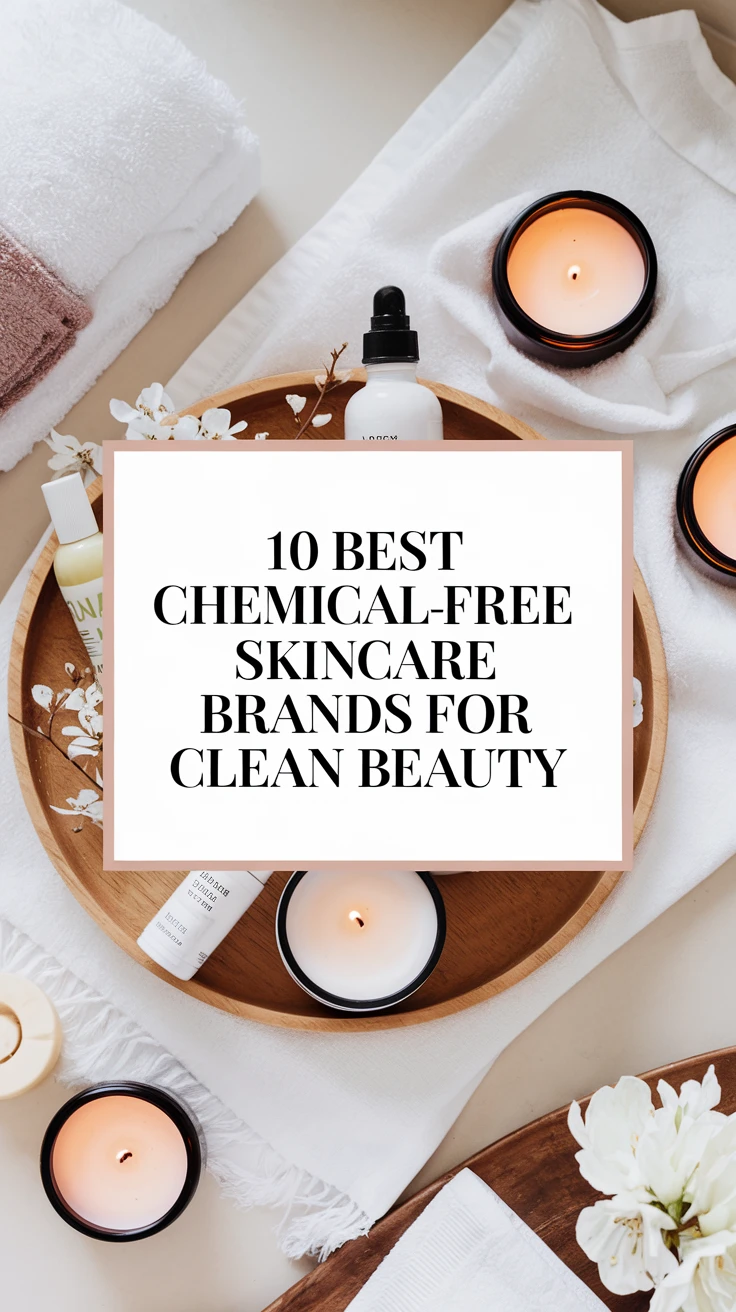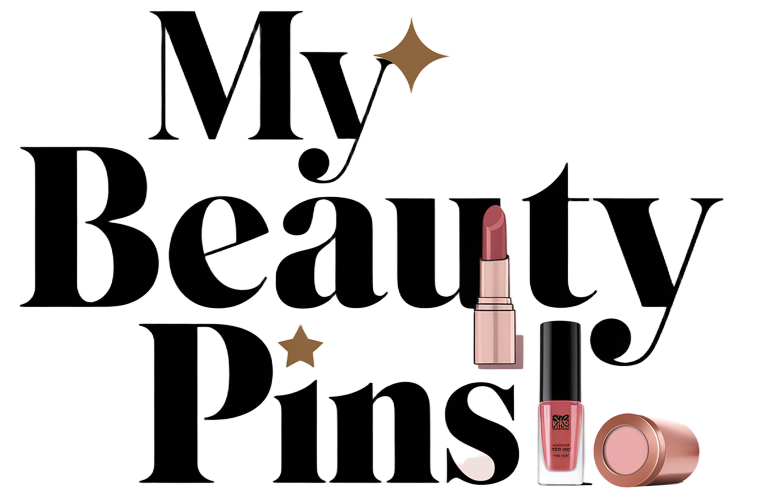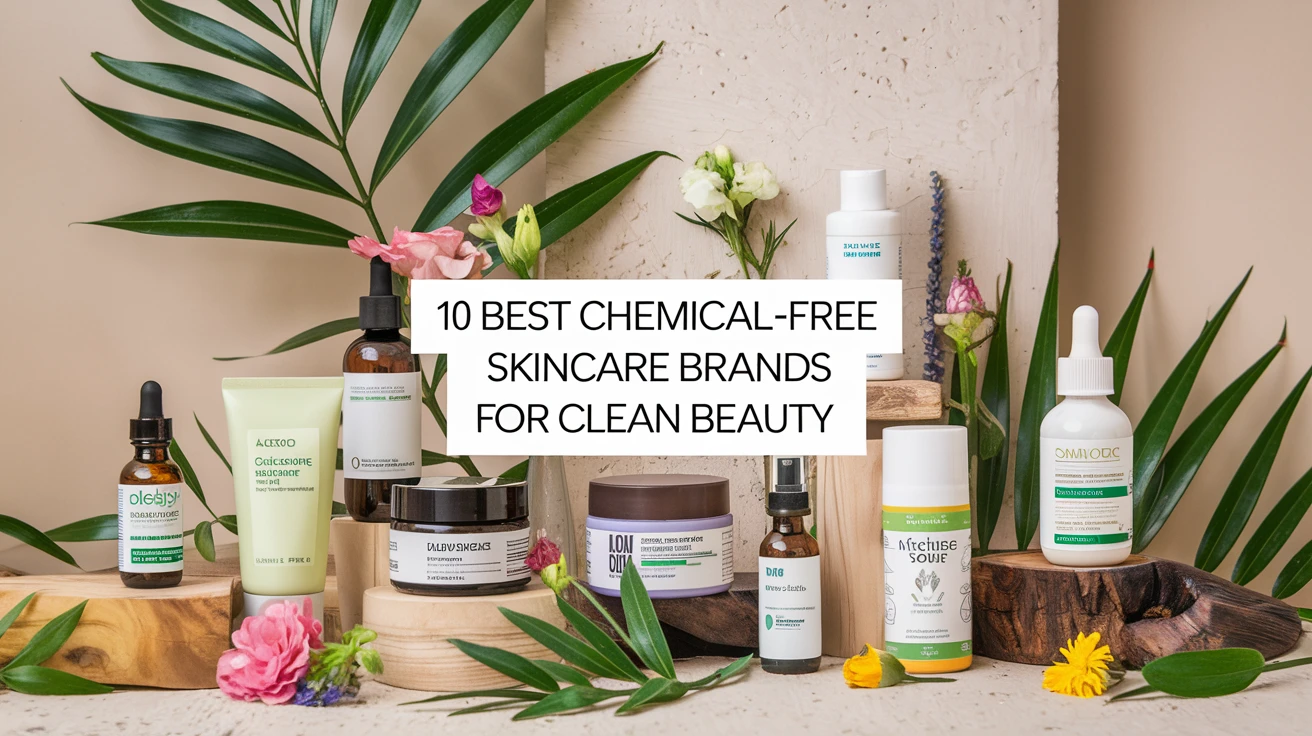
When I first discovered I had sensitive skin, finding the right skincare products felt like navigating through a maze blindfolded. After countless reactions to conventional products, I embarked on a journey into the world of chemical-free skincare that completely transformed my approach to beauty. Today, I’m excited to share my carefully researched and personally tested list of the best chemical-free skincare brands that are revolutionizing the clean beauty industry.
Understanding the Clean Beauty Revolution
Before diving into our top picks, it’s crucial to understand what “chemical-free” really means in skincare. While technically everything is made of chemicals (even water!), the term commonly refers to products free from harmful synthetic ingredients. Through my years of research and personal experimentation, I’ve learned to identify truly clean brands from those merely jumping on the natural bandwagon.
What to Look For in Chemical-Free Products
- Natural and organic ingredients
- Transparent ingredient lists
- Environmental certifications
- Sustainable packaging
- Cruelty-free practices
Common Harmful Ingredients to Avoid

| Ingredient | Why It’s Harmful | Natural Alternative |
|---|---|---|
| Parabens | Hormone disruption | Grapefruit seed extract |
| Phthalates | Reproductive issues | Essential oils |
| Synthetic fragrances | Allergic reactions | Pure essential oils |
| Sulfates | Skin irritation | Coconut-based cleansers |
10 Leading Chemical-Free Skincare Brands
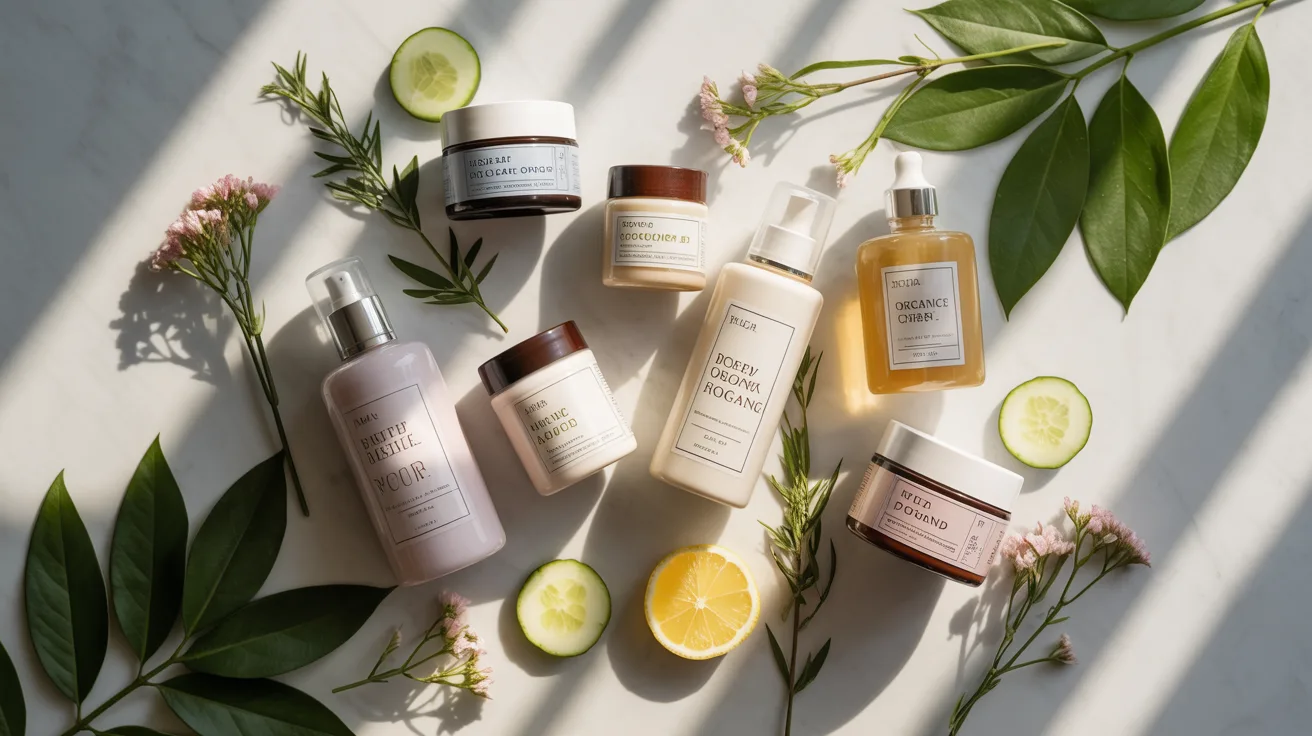
1. Herbivore Botanicals
My first introduction to luxury natural skincare came through Herbivore’s Blue Tansy mask. Their commitment to using food-grade organic ingredients and recyclable packaging sets them apart. Every product is formulated without synthetic preservatives, making them a true pioneer in clean beauty.

View on AmazonAs an Amazon Associate, I earn from qualifying purchases.

View on AmazonAs an Amazon Associate, I earn from qualifying purchases.
2. True Botanicals
What impressed me most about True Botanicals is their clinical trials proving their natural formulations outperform conventional luxury brands. Their Pure Radiance Oil became my holy grail product during winter months.

View on AmazonAs an Amazon Associate, I earn from qualifying purchases.

View on AmazonAs an Amazon Associate, I earn from qualifying purchases.
3. Tata Harper
Operating from their own organic farm in Vermont, Tata Harper controls their entire production process. Their Regenerating Cleanser changed my perspective on natural exfoliants’ effectiveness.

View on AmazonAs an Amazon Associate, I earn from qualifying purchases.

View on AmazonAs an Amazon Associate, I earn from qualifying purchases.
4. One Love Organics
This brand holds ECOCERT certification, ensuring the highest standards of natural and organic ingredients. Their Vitamin B Enzyme Cleansing Oil revolutionized my double-cleansing routine.

View on AmazonAs an Amazon Associate, I earn from qualifying purchases.

View on AmazonAs an Amazon Associate, I earn from qualifying purchases.
5. Josh Rosebrook
A master herbalist’s approach to skincare, Josh Rosebrook’s products feature unique herb and plant combinations. The Hydrating Accelerator became my go-to toner for dehydrated skin.

View on AmazonAs an Amazon Associate, I earn from qualifying purchases.

View on AmazonAs an Amazon Associate, I earn from qualifying purchases.
6. May Lindstrom
Luxury meets sustainability in May Lindstrom’s artisanal formulations. The Blue Cocoon balm, though pricey, proved worth every penny for calming sensitive skin.
7. Pai Skincare
Specifically formulated for sensitive skin, Pai’s products are certified organic by the Soil Association. Their Rosehip Oil transformed my approach to treating hyperpigmentation.
8. Osea
Harnessing the power of seaweed and marine ingredients, Osea proves ocean-based skincare can be both effective and sustainable. Their Ocean Cleanser became my summer staple.
9. Dr. Alkaitis
Created by a molecular biologist, these products contain only biologically active ingredients. The Organic Nourishing Treatment Oil helped repair my damaged moisture barrier.
10. 100% Pure
True to their name, this brand uses food-grade ingredients so pure you could technically eat them (though I don’t recommend it!). Their Coffee Bean Caffeine Eye Cream is my morning essential.
| Brand | Price Range | Best For | Signature Product |
|---|---|---|---|
| Herbivore | $$-$$$ | Combination Skin | Blue Tansy Mask |
| True Botanicals | $$$ | Anti-aging | Pure Radiance Oil |
| Tata Harper | $$$ | Luxury Natural | Regenerating Cleanser |
![]() As an Amazon Associate, I earn from qualifying purchases.
As an Amazon Associate, I earn from qualifying purchases.
Making the Switch: Your Guide to Natural Skincare
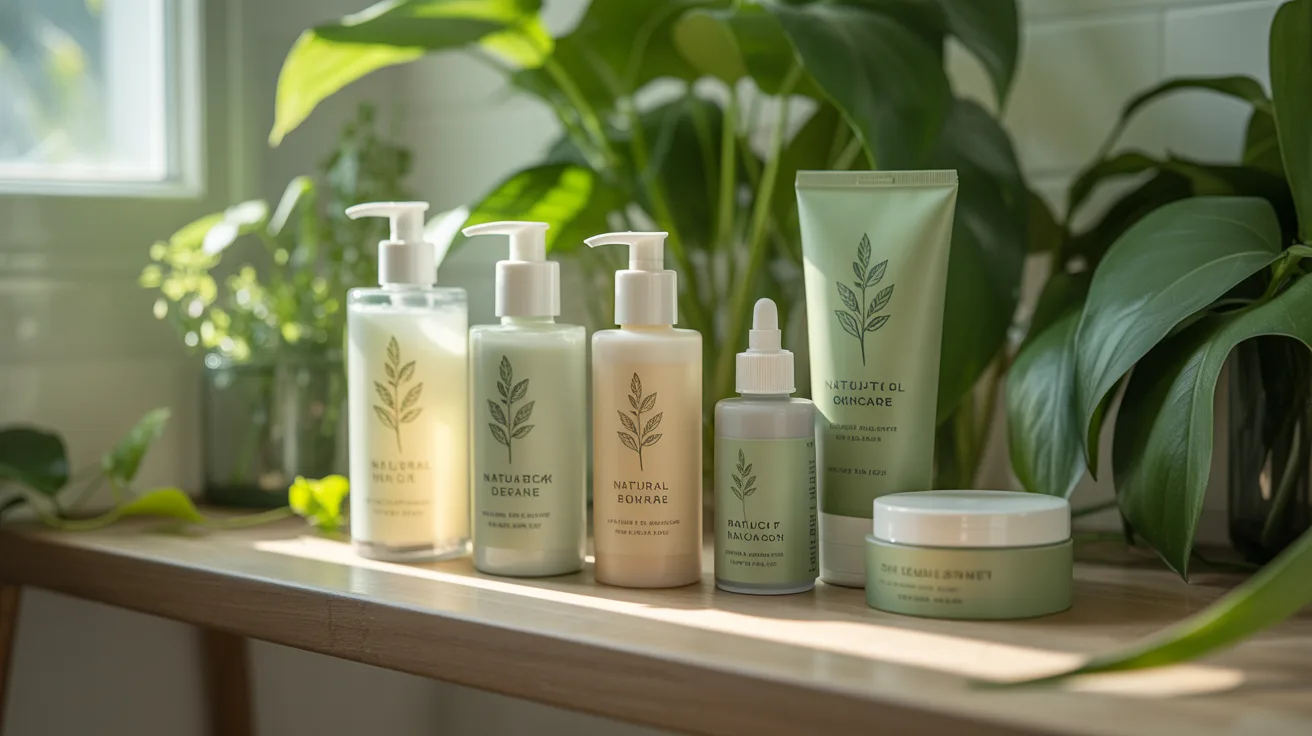
Transition Tips
- Start with one product at a time
- Begin with gentle cleansers
- Patch test new products
- Keep track of ingredients that work for you
- Be patient during the adjustment period
Common Mistakes to Avoid
During my transition to chemical-free skincare, I made several mistakes that you can learn from. Don’t try to switch all products at once, and remember that natural doesn’t always mean gentle. Some of the most irritating reactions I’ve had were from concentrated essential oils in natural products.
The Hidden Benefits of Going Chemical-Free
Beyond the obvious skin benefits, switching to chemical-free skincare has broader implications. I’ve noticed improved overall skin resilience, reduced environmental impact, and even savings in the long run as I need fewer products to maintain healthy skin.
Environmental Impact
- Reduced chemical waste in water systems
- Sustainable packaging options
- Support for organic farming practices
- Lower carbon footprint in production
Conclusion
Transitioning to chemical-free skincare isn’t just a trend; it’s a sustainable approach to beauty that benefits both your skin and the environment. Through my journey, I’ve discovered that effective skincare doesn’t require harsh chemicals – nature provides everything we need. Start with one brand from this list that resonates with your skin’s needs, and begin your own clean beauty journey.
Key Takeaways
- Chemical-free doesn’t mean ingredient-free; look for natural, organic alternatives
- Start your transition gradually with one product at a time
- Invest in brands with transparent ingredient lists and sustainable practices
Frequently Asked Questions
What does “chemical-free” actually mean in skincare?
While nothing is truly chemical-free, the term refers to products free from synthetic ingredients, harmful preservatives, and artificial fragrances.
Are natural skincare products as effective as conventional ones?
Yes, many natural products have been clinically proven to be as effective or more effective than their conventional counterparts, especially when formulated properly.
How long does it take to see results with chemical-free skincare?
Typically, allow 4-6 weeks for your skin to adjust and show improvements, though some benefits may be noticeable immediately.
Are chemical-free products safe for sensitive skin?
Generally yes, but always patch test as natural ingredients can still cause reactions in some individuals.
Do natural products have a shorter shelf life?
Yes, most natural products have a shorter shelf life (6-12 months) due to the absence of synthetic preservatives.
How should I store chemical-free skincare products?
Store in a cool, dark place away from direct sunlight and heat to maintain ingredient integrity and extend shelf life.
Are chemical-free products more expensive?
Initially yes, but they often require less product per use and can be more cost-effective long-term.
Can I mix chemical-free products with conventional skincare?
Yes, but introduce new products gradually to monitor how your skin reacts to different combinations.
Are all organic skincare products chemical-free?
Not necessarily. Always check ingredient lists as some organic products may still contain synthetic preservatives.
How can I verify if a brand is truly chemical-free?
Look for third-party certifications, transparent ingredient lists, and research the brand’s manufacturing processes and standards.
